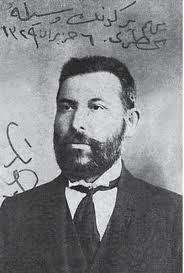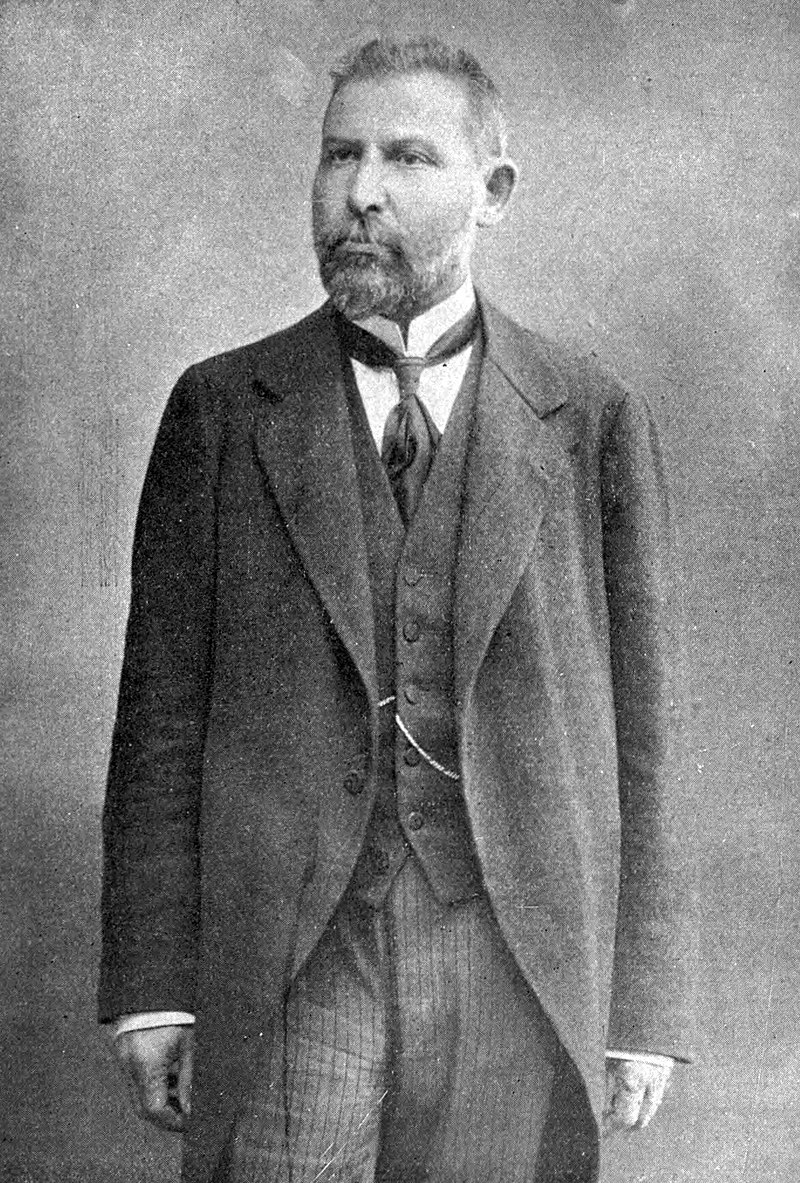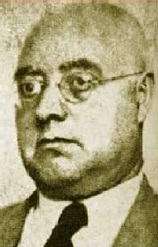<Back to Index>
- Physician and Member of the Young Turks Abdullah Cevdet, 1869
- Writer and Member of the Republican People's Party Moiz Cohen (Munis Tekinalp), 1883
PAGE SPONSOR


Abdullah Cevdet (9 September 1869, Arapgir, Malatya Province - 29 November 1932, Ottoman Turkish: عبدالله جودت) was an Ottoman intellectual and a medical doctor by profession of Kurdish descent. He was also a poet, translator, radical free thinker and an ideologist of the Young Turks who led the Westernization movement in the Ottoman Empire from 1908 until 1918.
Cevdet was influenced by materialistic philosophies of the West and antagonistic towards institutionalized religion. He published articles on socio - religious, political, economic and literary issues in the periodical İctihad, which he founded in 1904 in Geneva and used to promote his modernist thoughts. He was arrested and expelled from his country several times due to his political activities and lived in Europe (e.g. London, Paris).
The overall goal of Young Turks such as Cevdet was to bring to an end the regime of Sultan Abdülhamid II. For this purpose Cevdet and four other medical students at the Military Medical Academy in Istanbul founded the secret "Committee of Union and Progress" (CUP) in 1889. Initially with no political agenda, it became politicized by several leaders and factions and mounted a revolution against Abdülhamid II in 1908. However, Abdullah Cevdet was not politically involved in the CUP but promoted his secular ideas until his death.
He was also involved in several Kurdish organizations formed after the 1908 revolution. He was involved in the Society for the propagation of Kurdish education founded in 1910 and wrote for two journals published by the Kurdish Students' Hope Society. Prior to the First World War, his involvement with the Kurdish associations did not contradict his Ottomanism. However, after 1918, he joined the Society for the advancement of Kurdistan, which did advocate Kurdish self rule.
He was tried a few times because some of his writings were considered as blasphemy against Islam and the prophet Muhammad. For this reason he was labelled as the "eternal enemy of Islam" (Süssheim, EI) and called "Aduvullah" (the enemy of God). Probably his most famous court case was due to his praising the Bahá'í Faith in his article in İctihad, 1 March 1922. Abdullah Cevdet was one of the intellectuals who influenced Mustafa Kemal Atatürk in his reforms of secularization in Turkey.
Left alone in his final years, Abdullah Cevdet died on 29 November 1932. His body was brought for religious funeral service to Hagia Sophia, which was used as a mosque at that time. However, nobody claimed his coffin, and it was expressed that he did not deserve Islamic funeral prayer. Following an appeal of Peyami Safa, a notable writer, the funeral prayer was performed. His body was then taken by city servants to the Merkezefendi Cemetery for burial.

Moiz Cohen (1883 Serres, Ottoman Empire - 1961 Nice, France) was a Turkish writer and philosopher of Pan - Turkism movement. Born to a Jewish family, he changed later his name to Munis Tekinalp.
He was sent for schooling in the Alliance Israélite Universelle school in Salonica, continuing for a rabbinical ordination (though he never practiced). He would later continue to legal studies in Salonica, completing them in Istanbul after Salonica fell to Greece.
In 1905, he began to write for the newspapers Asır, where he worked for five years and was promoted to its editor - in - chief. While he has teaching law and economics at Istanbul University he was engaged in tabac export. He published an economy magazine for the Association of Economy and served as a consultant for some companies until 1918.
Following World War I, he was much disappointed. He put his heart to Kemalism and changed his name to Munis Tekinalp. He taught in the community schools, and entered active politics in the Republican People's Party (CHP). He served in the city council. Tekinalp ran for the general elections in 1954 and 1957, however he could not enter the parliament. He served as the secretary general of the Istanbul Chamber of Commerce. He wrote for the newspapers Cumhuriyet, Vatan, Akşam, Hürriyet and Son Posta.
He would later became one of the founding fathers of Turkish nationalism and an ideologue of Pan - Turkism, then of Kemalism, after 1923. He was a proponent of minorities within the Turkish Republic Turkifying themselves, and wrote such in his pamphlet Türkleştirme (1928). He presented the principles of Kemalism in a book published in Istanbul in 1936, then updated and translated into French one year later, with a preface by Édouard Herriot (Le Kémalisme, Paris: Félix Alcan Publisher, 1937).
Following his retirement from the Turkish Language
Association in 1956, he moved to Nice, France, where he
died 1961.